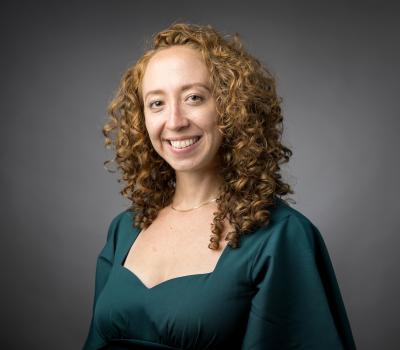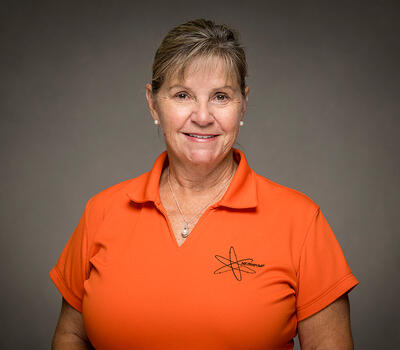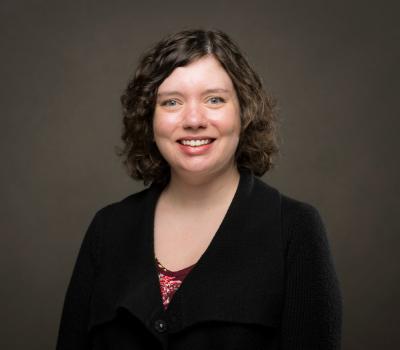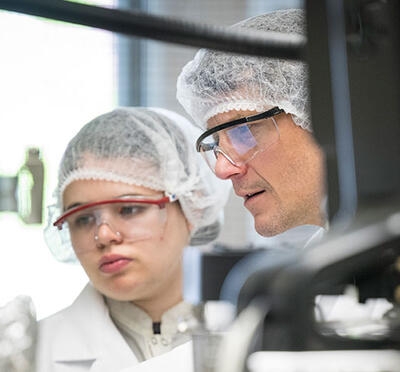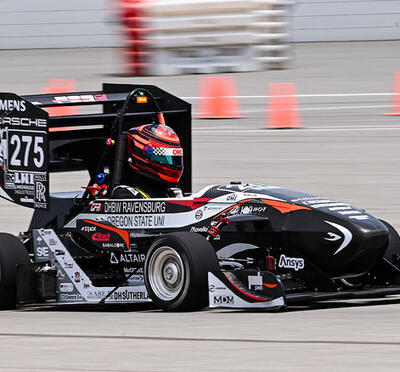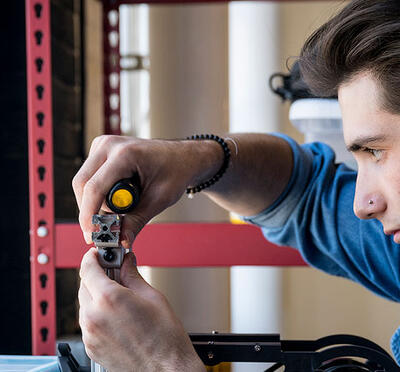In the days following March 18, the date Oregon State University announced that all courses would be conducted remotely during the spring term in response to the COVID-19 health emergency, students flooded Cassie Pitkin with emails:
Should I stay in Corvallis? Will residence halls stay open? Will international students be able to go home? Will labs be done on Zoom? Can I get financial aid if I lose my job? Will my internship be canceled?
“There were so many unknowns and so much to figure out. Stress levels were high for students, staff, and faculty alike,” said Pitkin, the head advisor for the College of Engineering’s School of Mechanical, Industrial, and Manufacturing Engineering.
Students still faced routine issues, like career planning, course selection, and concerns about academic performance, but these seemed magnified or distorted by the spreading turbulence of COVID-19, Pitkin said. Other, never-imagined challenges emerged purely as products of extraordinary conditions, like prolonged isolation, mandatory remote learning, and sudden job loss.
“The greatest impact has been lost jobs and canceled internships, which have affected a number of our students,” said Lindsay Wills, an undergraduate advisor in the School of Chemical, Biological, and Environmental Engineering. “I’ve been trying to connect students who are now out of work with resources that might help them find additional financial help.”
For students who lost their spring/summer MECOP internships, advisors worked quickly to place them in courses so the term wouldn’t go to waste. “Faculty were very gracious opening up slots to accommodate additional students,” Pitkin said. “We got most of them enrolled.”
According to the advisors, students are pleased with the quality of remote learning. “It’s not universal, but I’ve heard very positive feedback,” Wills said. “Frankly, their reactions have been more positive than I expected. Instructors worked very hard to change the format as seamlessly as possible, and students really appreciate the effort.”
Even labs have been adapted successfully to remote teaching.
“I’ve heard from some students who have lab classes by Zoom, and they seem to be working out OK. I haven’t heard any negative comments,” said Joan Stueve, head advisor for the School of Nuclear Science and Engineering.
Pitkin agrees. “They’re very satisfied by the quality of the learning experience,” she said. “Of course, students would prefer regular classes, but they also know this is just another quarter that will count on their transcripts like any other, so they’re pushing through.”
And, like the rest of us, they’re pushing through in varying degrees of social isolation. Students who moved back home at least have family support. Those who stayed in Corvallis — voluntarily or because they had nowhere else to go — may find themselves completely alone.
“A number of students have complained about the level of isolation they’re facing, and there’s a lot of concern about its effects,” Wills said. She noted that students have been tepid to suggestions that they contact the university’s counseling and psychological services for help because they view the situation as something temporary that will resolve itself when things return to normal.
Going hand in hand with seclusion can be intensive close-quarter living.
“One of my students is supposed to be finishing his Ph.D. dissertation, but he has a couple of young children running around his home. It’s not an ideal environment for academics,” said Whitney Korthauer, graduate program coordinator in the School of Civil and Construction Engineering, who added that the greatest impact for graduate students has been a disruption of their research.
Time management — a bugaboo for many students in the best of times — has become more difficult. The routine of getting up, going to campus, returning home, and studying is just a memory that’s been replaced by an academic world that has contracted to nothing more than a desk or a couch a few steps away.
“I urge them to block out a schedule and stick with it: homework, exercise, classes, meals,” Stueve said. “It’s easy to get tempted by video games or the beautiful sunshine outside. I’m continually reminding them that academics should be one of their top priorities: Stay focused, stay on task, you have to pass your courses.”
To be sure, some students are enduring great hardships, but others are faring well, according to Pitkin. “We know our students are resilient, but it’s surprising to me how most of our conversations don’t center around things pandemic related,” she said. “It’s admirable how they’ve just jumped in. Sometimes I need to reassure them that they’re still going to graduate from Oregon State and that they’ll continue on the same path that they were on before. It’s just a matter of time.”

